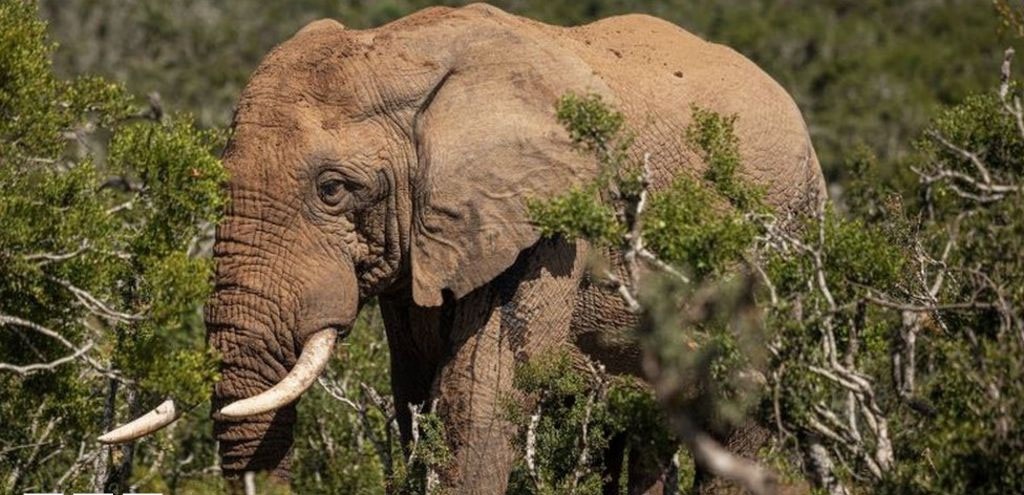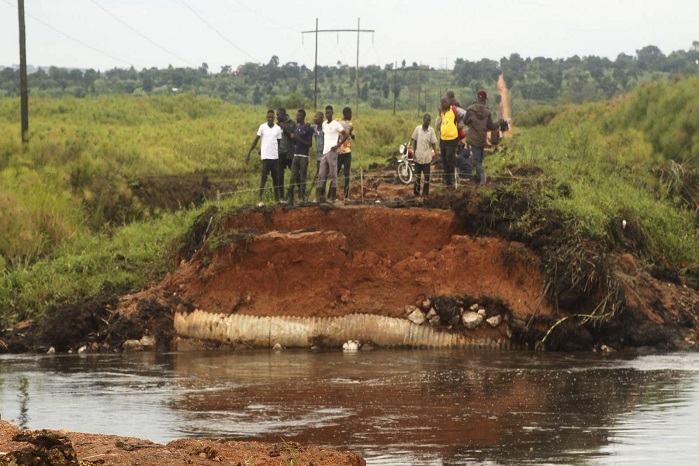
Gigantic elephant
HABARI DAILY I Kampala, Uganda I A recent incident where a 25-year-old mother was trampled to death by an elephant while guarding her crops, has brought fear and tribulation among the people of Kitagwenda.
The unfortunate incident renewed urgent demands for the completion of a stalled electric fence intended to shield villagers from roaming wildlife.
The deceased has been identified as Juliet Masika, a mother of three from Zambia Cell in Kanyabikyere Ward. Local leaders say Masika was on her farm on Friday night trying to protect her maize when the animal struck.
“This is a heartbreaking loss for the family and the whole village,” said Ashabahebwa Silvest, the LC1 vice-chair for the area. He added that residents are frustrated and afraid, noting the incident occurred as people attempted to defend their food sources.
Mahyoro Town Council chair John Vincent Bimbona, who inspected the scene, criticized wildlife authorities for what he described as slow progress on mitigation measures. “We cannot continue to lose people,” Bimbona said. “The fence project was supposed to prevent exactly this sort of tragedy — we need results, not promises.”
Locals say Masika’s death is the fifth fatality linked to wildlife in roughly two-and-a-half years, highlighting a pattern of repeated conflict between people and animals in the district. Community members are urging the Uganda Wildlife Authority (UWA) and the Ministry of Tourism, Wildlife and Antiquities to make finishing the electric barrier a top priority.
The fence, a 14-kilometre electric perimeter funded at about Shs 1.5 billion, was announced in September 2023 to protect Mahyoro Town Council from elephants, hippos and other encroaching wildlife. But residents say construction has largely stalled, leaving homes and farms exposed to nightly incursions.
“Crops are being eaten and livelihoods destroyed,” Bimbona said. “People who go out to guard their gardens are being put in grave danger. The authorities must accelerate the work and provide interim safety measures while the fence is completed.”
The UWA has previously acknowledged resource and logistic challenges in rolling out community protection projects across areas that border wildlife habitats. Officials have also urged villagers to adopt short-term precautions such as coordinated night patrols and early-warning systems, though locals say these measures are insufficient without the promised fencing and other long-term interventions.
Family members and neighbours have appealed for support for Masika’s three children, while activists and civic leaders call for a renewed focus on human-wildlife conflict mitigation in Kitagwenda and similar districts where agricultural land meets natural corridors.
Community leaders say they will push central government agencies to deliver the fence and other protective measures promptly to prevent more lives from being lost to wildlife encounters.




